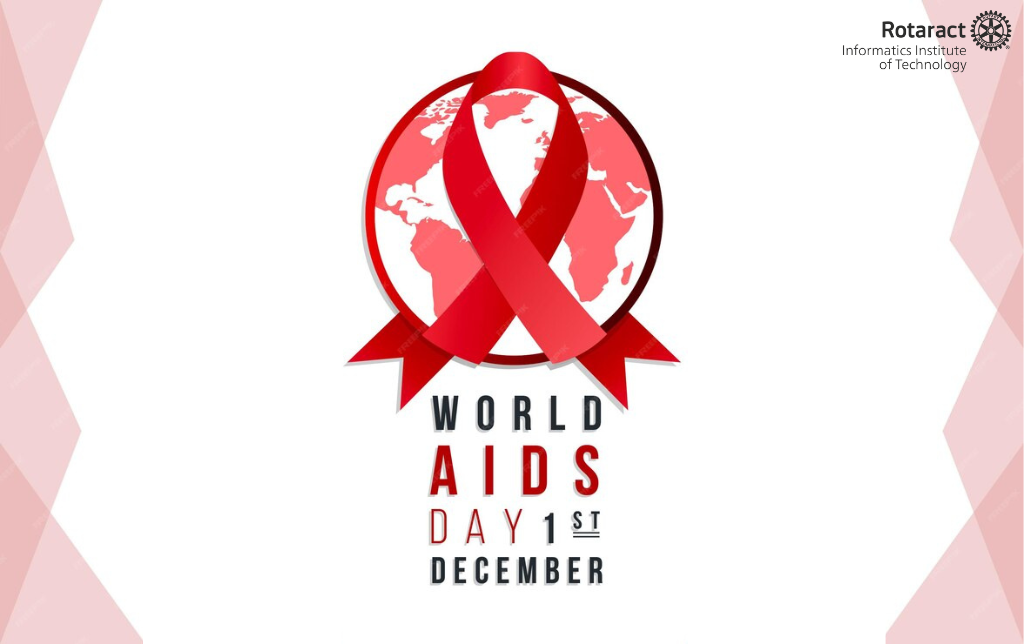
A Day of Unity: Reflecting on World AIDS Day and the Fight Against HIV
Every year, on December 1, people across the globe pause to recognize World AIDS Day. It’s more than just a date on the calendar; it’s a moment to reflect, remember, and renew our commitment to fighting one of the most profound public health challenges humanity has ever faced.
World AIDS Day began in 1988, at the height of the HIV/AIDS epidemic, when fear and misinformation about the disease were widespread. It was the first global health day of its kind, created to raise awareness, tackle stigma, and unite people in the fight against HIV. Decades later, it remains a powerful reminder of the lives lost, the progress we’ve made, and the work that still lies ahead.
HIV, the virus that causes AIDS, emerged as a mysterious and deadly illness in the 1980s. At first, it seemed unstoppable—tearing through communities, devastating families, and leaving people scared and uncertain. But even in those darkest days, there was resilience. Activists, healthcare workers, scientists, and ordinary people came together to demand action, raise awareness, and push for better treatment and care. Their courage laid the foundation for the progress we see today.
Today, living with HIV is no longer a death sentence. Advances in medicine, particularly antiretroviral therapy (ART), have transformed what was once a fatal illness into a manageable chronic condition. People living with HIV can now lead long, healthy lives, and the risk of transmitting the virus can be significantly reduced with proper treatment. These breakthroughs are a testament to what we can achieve when science, funding, and global cooperation come together.
Yet, the fight is far from over. Around 38 million people worldwide are still living with HIV, and far too many of them lack access to the care they need. Stigma and discrimination remain formidable barriers, preventing people from seeking testing or treatment. Inequality, poverty, and social exclusion continue to fuel the epidemic, especially in marginalized communities such as LGBTQ+ individuals, people of color, and those in low-income regions.

World AIDS Day reminds us that healthcare is a human right and that no one should be left behind. The global theme for this year, "Ending the HIV Epidemic: Equitable Access, Everyone’s Voice," highlights the urgency of bridging the gaps in care and addressing the structural inequalities that perpetuate the crisis. It calls on all of us—governments, organizations, and individuals alike—to work together to create a future where no one is denied life-saving treatment because of who they are or where they live.
At its core, World AIDS Day is also about human stories. It’s about the millions who have lost their lives to AIDS-related illnesses and the loved ones they left behind. It’s about the people living with HIV who face their diagnosis with strength and resilience, often while battling prejudice and fear. And it’s about the tireless efforts of researchers, healthcare providers, and activists who refuse to give up until the epidemic is over.
This day is not just about looking back—it’s about looking forward. We’ve come so far, but there is still so much we can do. Access to preventive measures like pre-exposure prophylaxis (PrEP) must be expanded. Efforts to reduce stigma and misinformation must be redoubled. And investments in research to develop vaccines and, one day, a cure must continue.
Ending the HIV epidemic isn’t just a medical challenge; it’s a social one. It requires compassion, education, and unwavering dedication to the idea that everyone deserves dignity, respect, and care. Small acts, like wearing a red ribbon, can spark conversations and spread awareness. Donating to organizations working on the front lines or volunteering your time can make a real difference.
On World AIDS Day, we light candles and remember those we’ve lost. We celebrate the victories—the lives saved, the barriers broken, and the stigma shattered. But most importantly, we recommit to the fight. Because until HIV is no longer a threat, we owe it to ourselves and to future generations to keep pushing forward.
This isn’t just a global fight; it’s a deeply personal one. It’s about ensuring that everyone, no matter where they come from or who they are, has the opportunity to live a life of hope, health, and possibility.
So today, let’s pause to reflect, honor, and act. Together, we can create a future where World AIDS Day becomes a commemoration of history, not an ongoing battle. Through understanding, empathy, and determination, we can end the HIV epidemic once and for all.






